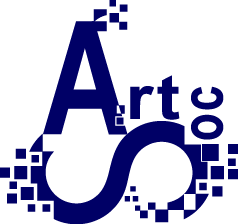Twenty third international online seminar "Artificial Societies and Information Technologies"
On January 26, 2024, a meeting of the international online seminar "Artificial Societies and Information Technologies" was held, dedicated to the report MLE/GenAI Engineer at Mission Cloud Consulting, Yule Wang (Simon Fraser University, Ontario, Canada).
Speech topic: Self-improve LLM-based Agent and its Prospects
Abstract:
Large Language Models (LLMs) like GPT-4 have revolutionized user-computer interaction through their intuitive natural language interfaces, adeptly handling complex problems. They excel in deconstructing intricate problems into manageable segments, providing step-by-step solutions, actions and evaluations. Such capabilities position them as versatile tools for a range of challenges. Despite their strengths, LLMs face limitations due to their closed-system nature, particularly in accessing up-to-date information and specialized knowledge. This can lead to inaccuracies or "hallucinations" – generating false information. Customizing these models through fine-tuning might seem a solution, but it narrows their generality. This process requires fine-tuning the neural network parameters and datasets for each specific domain, which doesn't fully address challenges like performing arithmetic and staying current with the latest information. These gaps highlight the need for integrating external data sources and additional functionalities into LLMs. Reflecting on historical AI concepts like Minsky's "Society of Minds" from the 1980s and Schmidhuber's "Learning to Think" from the 1990s, we ponder whether current LLM-agent systems are advancing towards these visionary ideas and the ultimate goal of Artificial General Intelligence (AGI). This presentation explores the evolution of LLM-based agents, from basic models to those resembling human cognitive complexity, providing an engineering perspective on their underlying architecture. It concludes by speculating on the future roles of LLM-based agents in bridging the gap towards realizing the AGI future.
The meeting was attended by representatives of Russia (CEMI RAS, Moscow State University, Ufa Scientific Center of the Russian Academy of Sciences, Voronezh State University), China (University of Chinese Academy of Sciences, Milestone software company), Great Britain (University of Southampton), Canada (Simon Fraser University ), Bulgaria (American University in Bulgaria) and Kazakhstan (Eurasian National University named after L. N. Gumilyov, Nur-Sultan).




 YouTube
YouTube Requisites
Requisites